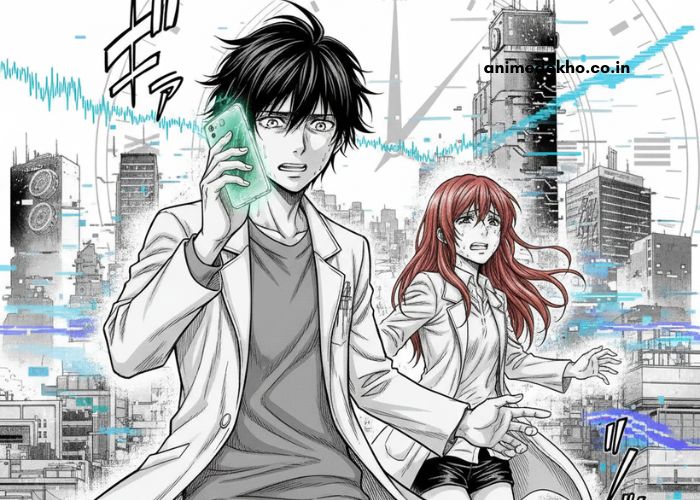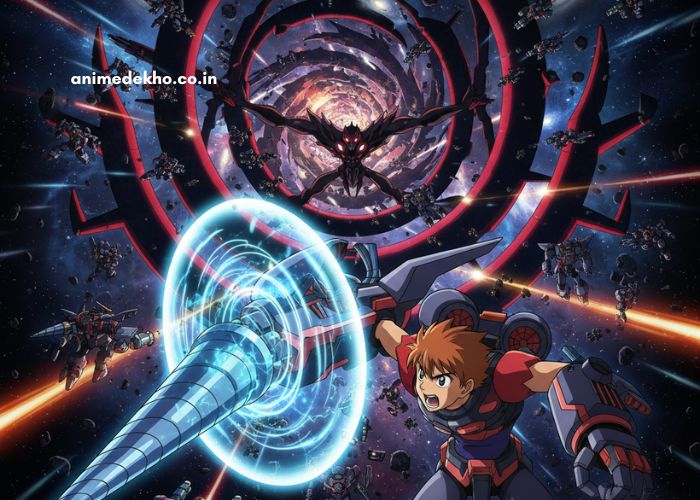| Point | Details |
|---|---|
| Main Character | Rintarou Okabe |
| Key Concept | Time Travel Experiment |
| Main Device | Phone Microwave |
| Goal | Change the Past |
| Result | Unintended Consequences |
| Theme | Fate vs. Free Will |
| Emotional Core | Sacrifice & Regret |
The Steins;Gate manhua episode stands as one of the most compelling science fiction narratives in modern storytelling. Adapted from the iconic visual novel and anime, this manhua brings a unique artistic perspective to the complex tale of time travel, fate, and friendship. Each chapter delves deeper into the consequences of altering time and the emotional cost of playing with destiny.
In this article, we’ll explore the episode’s plot, characters, themes, and why Steins;Gate remains a must-read for sci-fi enthusiasts and manga lovers alike.
The Premise of Steins;Gate
Set in Akihabara, Steins;Gate follows Rintarou Okabe, a self-proclaimed “mad scientist,” and his group of friends who accidentally discover a way to send messages to the past. Using a modified microwave called the “Phone Microwave,” they alter past events and unknowingly trigger a series of timelines filled with tragedy, sacrifice, and moral dilemmas.
The manhua adaptation captures this narrative brilliance with crisp artwork, detailed expressions, and visual cues that heighten the sense of suspense and urgency.
Plot Overview of This Episode
In this specific episode, Okabe continues his struggle to undo the disastrous effects of time manipulation. His actions lead to unexpected consequences, and each decision he makes drags him deeper into emotional turmoil. The episode masterfully blends tension with introspection, showing how even small changes in time can lead to massive ripple effects.
Kurisu Makise, the brilliant neuroscientist, plays a crucial role, providing both intellectual insight and emotional grounding. Her interactions with Okabe highlight the delicate balance between science and emotion.
The manhua’s pacing ensures that readers remain engaged as mysteries unfold and the stakes rise. It’s not just about changing the past—it’s about understanding the weight of choice and the value of human connection.
Key Point and Symbolism
-
Time and Consequence: Every choice Okabe makes comes with a price, emphasizing that knowledge and power can lead to both salvation and destruction.
-
Fate vs. Free Will: The episode questions whether destiny can truly be changed or if fate simply reshapes itself in response.
-
Sacrifice and Friendship: Emotional bonds are tested as the characters face life-altering decisions, making each scene deeply personal.
-
Scientific Ethics: The manhua raises philosophical questions about the responsibility of scientific discovery and its potential to harm or heal.
Why Fans Love This Episode
The Steins;Gate manhua episode has received acclaim for its faithful storytelling, emotional depth, and artistic quality. Fans praise how it captures the essence of the original anime while offering a new layer of visual intensity. The dramatic shading, precise panel transitions, and expressive character designs bring the time-travel narrative to life.
Moreover, this episode stands out for its emotional resonance—Okabe’s struggles mirror human fears of loss, regret, and the desire to fix past mistakes.
Conclusion
The Steins;Gatemanhua episode isn’t just another sci-fi story it’s a philosophical journey about time, responsibility, and love. Through gripping storytelling and striking visuals, it reminds readers that tampering with destiny always comes at a cost. Whether you’re a long-time fan of the anime or a newcomer to the series, this episode offers a perfect blend of suspense, intellect, and emotion.





